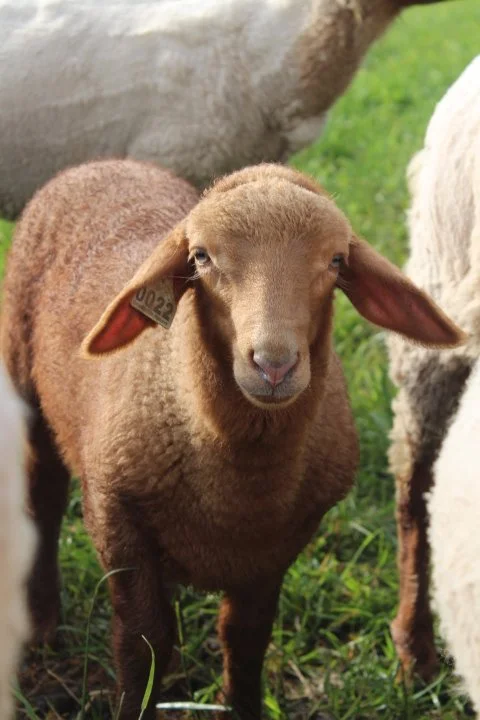
Sheep
Curious, gentle, and hardworking.
Our sheep are raised with care for milk, meat, and fiber.
Getting Started with Sheep
People raise sheep for many reasons. Some value their wool. Others appreciate the quality of lamb they provide. And more and more families are discovering their potential as dairy animals—something not everyone knows sheep excel at.
Dairy sheep in particular stand out. Our main flock is East Friesian dairy sheep, known worldwide for their incredible milk. For seven generations, we’ve carefully bred them to be hardy, healthy, and easy to hand-milk. Along the way, we’ve added genetics from Lacaune, Awassi, and Assaf to improve flavor, resilience, parasite resistance, and overall productivity. The result: a strong, reliable dairy line well-suited for homesteads and starter dairies.
Alongside them, we raise Tunis sheep, an American heritage breed prized for their calm nature, heat tolerance, and vigor. They’re easy keepers with beautiful wool and some of the best-tasting lamb you’ll find. Tunis sheep are also well-suited for South Carolina summers and are less prone to climbing and fence-testing compared to goats—making them a practical addition to many farms.
Most lambs are born in spring, and if you’re looking to begin with sheep, we recommend starting with lambs. Deposits are taken early and reservations are first come, first served. Baby lambs and a few ewes in milk may be available this season. Text Debbie at 864-360-3222 for prices and availability.
East Friesian - our dairy stars
East Friesians came to the U.S. in the 1990s, and they’ve been game‑changers for artisan cheesemakers ever since. Their milk is rich, nutrient‑dense, and naturally easy to digest. It’s the base for famous cheeses like Manchego, Pecorino, Roquefort, and Feta.
High yields with excellent protein and butterfat
Friendly traits for small farms and homesteads
Great for hand‑milking and starter dairies
Tunis — America’s red‑faced heritage
Tunis sheep have a history as rich as their flavor. First brought to America in the 1700s, they were once kept by Washington and Jefferson. After almost disappearing during the Civil War, the breed was saved by farmers in South Carolina.
Today they’re known for their sweet nature, heat tolerance, and outstanding lamb.
Gentle and easy to manage — great for beginners
Wool that’s soft, strong, and perfect for clothing
Delicious lamb and mutton with a long legacy
Lambs & New Beginnings
Most of our lambs are born in spring (Don’t forget to sign up for our Lamb-uary bottle brigade!).
If you’re dreaming of starting your own flock, we recommend reserving early — deposits are first‑come, first‑served. We usually have bottle babies and sometimes a few ewes in milk available.
Ongoing support
We’ll mentor you through health, feeding, breeding, and milking — as long as you need.
Recent seasons
Last year we helped 18 new producers in 5 states and placed over 100 sheep and lambs.

